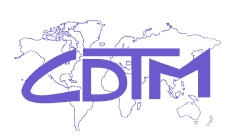| Résumé |
Abstract: "Born as an alternative trade model, Fairtrade seems to have lost its essence, stepping away from the solidarity economy values that it once embraced. The inclusion of conventional economic actors in the commodity chain (that demonstrate a low commitment to Fairtrade values), the consideration of farmer cooperatives as operational businesses, and, in the case of Fairtrade USA, the choice to diversify certification targets (such as by certifying big plantations) has had deep impacts on small-scale farmers. Nonetheless, we must nuance the situation, as Fairtrade had multiple positive effects on the livelihood of Mexican coffee farmers. The minimum price and premium system, while hardly permitting long-term investment strategies, has acted as a safety net for farmers, allowing them to not fall deeper into poverty, earn additional incomes and gain access to the global market. Furthermore, the Fairtrade network has allowed farmers to build strong relationships with some of the actors of the supply chain, ensuring safe trade relations and enabling the possibility for close collaboration on community development projects. The case of Triunfo Verde demonstrates well the successes but also the shortcomings of Fairtrade. Beyond the binary logic of positive and negative outcomes, we wish to give credit to this cooperative. It demonstrates the importance of assisting and providing the tools to these greatly organized farmer cooperatives, as their high potential for self-development is unquestionable. Our study includes two main limitations. First, while we were able to gather sufficient data, we would have wished to obtain more interviews, specifically with multinational coffee companies and other small farmer cooperatives in Chiapas. Second, our work heavily simplifies the supply chain of Fairtrade coffee. In reality, the supply chain is more complex as it is composed of additional actors that sometimes fulfill different roles. Traders may endorse both roles of exporters and importers, transporters are sometimes commissioned by farmer cooperatives themselves, and coffee manufacturers occasionally buy coffee beans that have already been roasted by previous actors of the commodity chain. However, for the sake of clarity and feasibility, we settled on a simplified description of the supply chain that would underline the core mechanisms of the Fairtrade system. Additionally, comparing the different modes of organization of farmer cooperatives around the world would give more explanation as to why Fairtrade initiatives may be effective in a country but less in another.”
|
 CDTM de Paris
Centre de ressources sur le commerce équitable
CDTM de Paris
Centre de ressources sur le commerce équitable
